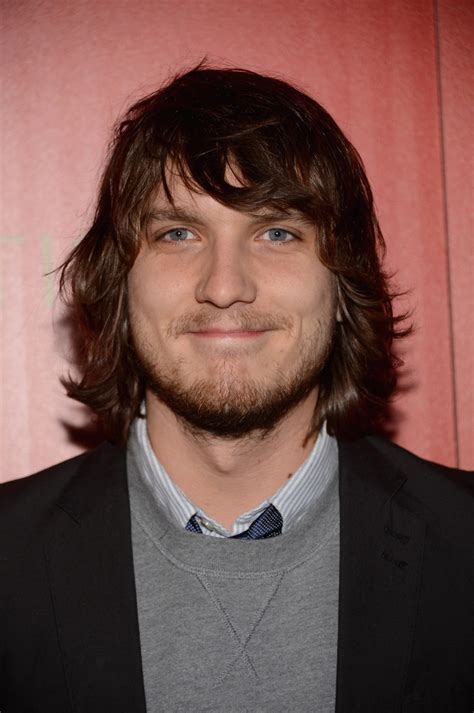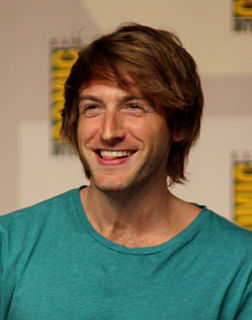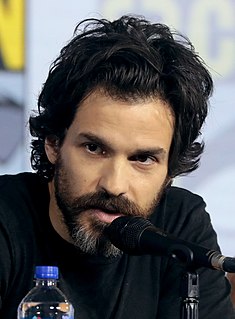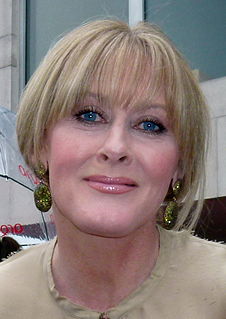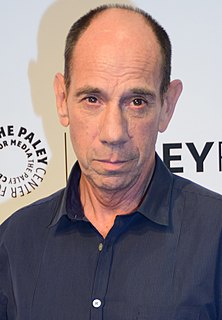A Quote by Scott Michael Foster
I think if an actor is right for a role, casting sees that, and the words that are on the page, depending on how it's written, can really help your character develop.
Related Quotes
I don't see myself as one type of actor. When you get one role, you start to get cast in that role for awhile because that's what people have seen you do, and have hopefully seen you do it successfully. And so, it becomes an easier thing to see you as, for casting directors and directors, and they start to think of you as that particular person or type of character. But, for me, I'm just an actor, first and foremost. The actors I respect are the real character actors, who are the real chameleon actors that completely change from role to role.
Every director is always directing around the play. If you have an actor who really doesn't get the character well enough, you have to direct the play around that character. You have to make choices with that actor. If you have an actor that really doesn't get the role and has certain visions of the role, sometimes you have to direct around that actor.
Casting is really a black art. It's a huge part of directing and it's the most invisible. It's one that people don't really think about or talk about. But you can really destroy your movie by casting it badly before you've shot a foot of film. And yet there are no guidebooks for it, there's no rule book to tell you how to do it. It's all your own experience and your own sensibility and your own intuition.
I've had experiences where I wasn't allowed to change words around at all because you have to say everything, exactly as written on the page. That's not fun for me. For me, part of being an actor is being able to contribute to a character's rhythms. If there's room to explore, you find a happy medium.
No matter what character your play. I feel like whenever anyone is honest and whole and well-written, you're going to be able to connect to that person because we're all kinda made up of the same stuff and I think that's always one of the really powerful things about approaching each individual character and role and film.
